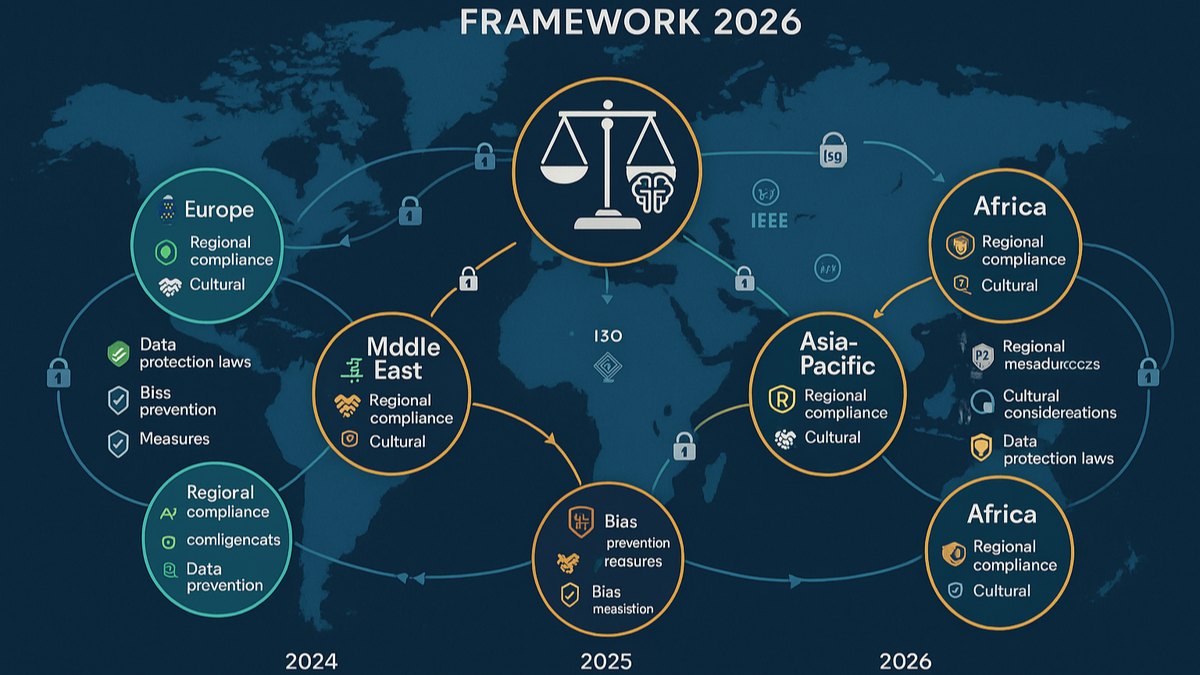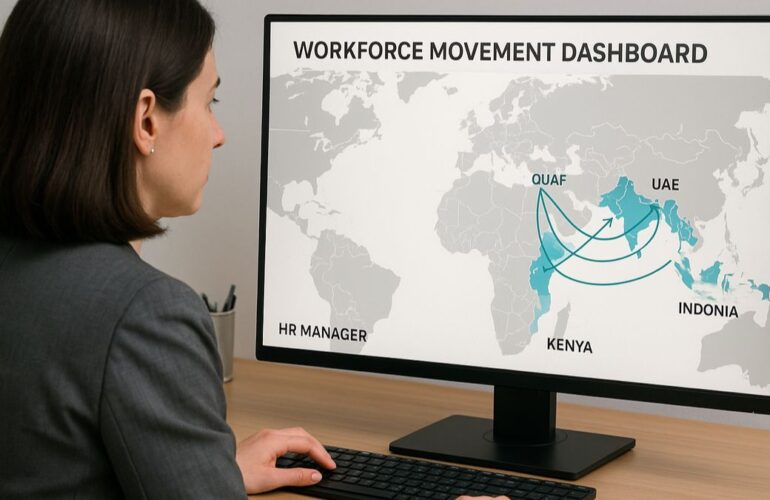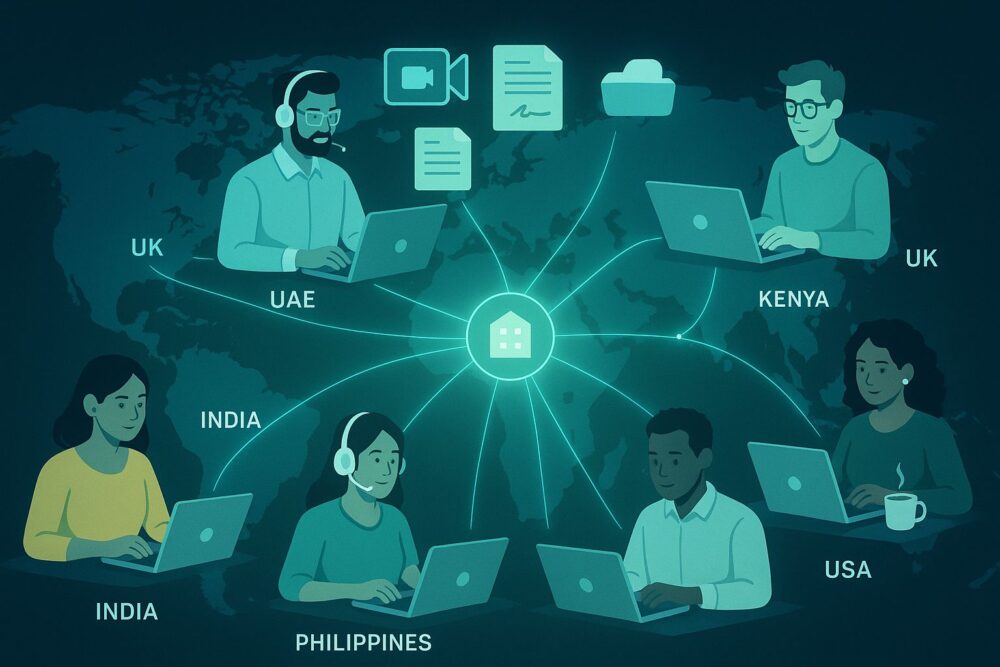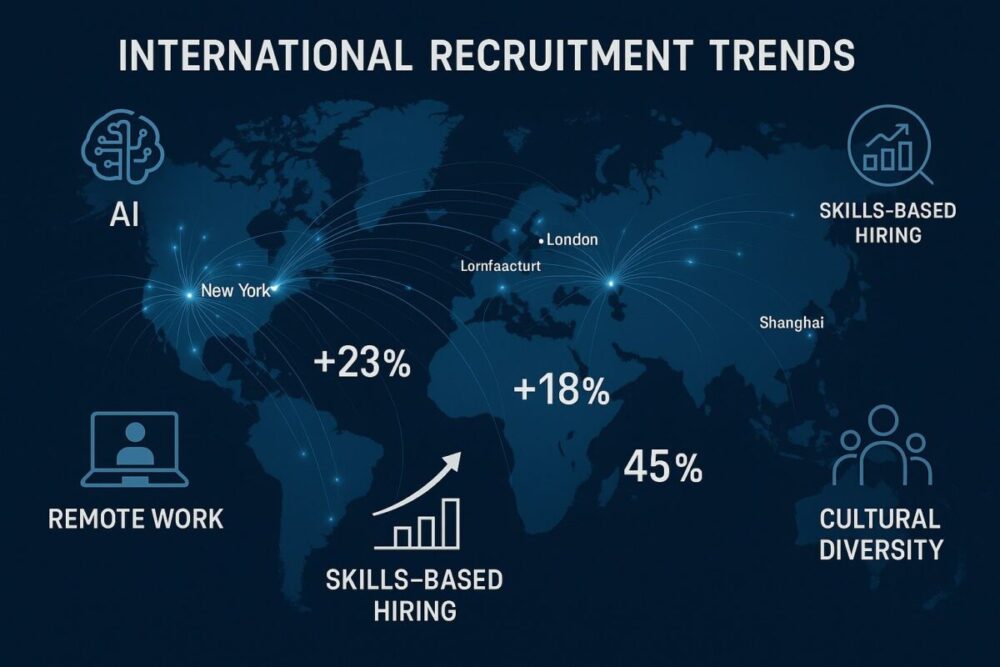Ethical AI in Recruitment 2026 Are Your Practices Compliant
Ethical AI in Recruitment 2026: The global recruitment landscape is undergoing a seismic shift. As we advance toward 2026, ethical AI in recruitment has transformed from an innovative concept to a fundamental business requirement. At Mahad Manpower, with our extensive presence across Qatar, the UAE, India, and Africa, we’re witnessing firsthand how artificial intelligence is revolutionising hiring practices while introducing complex ethical challenges that demand immediate attention from forward-thinking organisations.
The Global Imperative for Ethical AI in Recruitment 2026
In today’s interconnected world, where companies recruit talent across borders and cultures, Ethical AI in Recruitment 2026 represents a critical inflexion point. Consider this: 85% of Fortune 500 companies now use AI in their recruitment processes, processing millions of applications annually. However, without ethical guardrails, these powerful systems risk perpetuating biases on an unprecedented scale, potentially excluding qualified candidates based on factors unrelated to their ability to perform. AI in recruitment trends.
The stakes are particularly high for international recruitment firms like Mahad Manpower. When placing candidates across different countries and cultures, our AI systems must navigate varying legal frameworks, cultural expectations, and ethical standards while maintaining fairness and transparency.
Universal Ethical Challenges in AI-Driven Recruitment
1. Cross-Cultural Bias Amplification
AI systems trained on data from one region may not translate fairly to another. Ethical AI in Recruitment 2026 must address how algorithms interpret:
- Educational qualifications from different countries
- Varying resume formats and cultural presentation styles
- Language nuances and communication patterns
- Professional experience in diverse economic contexts
2. The Transparency Imperative
Candidates worldwide are demanding clarity about how AI evaluates their applications. The “black box” nature of many algorithms creates trust deficits, particularly when candidates cross international borders for opportunities. Transparency isn’t just ethical; it’s becoming legally mandatory in many jurisdictions. Recruitment 2026 is your practice. Data Privacy Across Borders
With regulations like GDPR in Europe, PDPA in Singapore, and emerging frameworks in the Middle East and Africa, Ethical AI in Recruitment 2026 requires sophisticated approaches to data handling. International recruiters must ensure compliance across multiple jurisdictions while maintaining operational efficiency.
The Evolving Global Regulatory Landscape
Regional Compliance Requirements
European Union: The EU AI Act classifies recruitment AI as “high-risk”, requiring strict compliance measures, including human oversight and bias testing.
United States: Various state laws, including those in California and New York, mandate AI audit requirements for recruitment tools.
Middle East: Countries like the UAE and Saudi Arabia are developing comprehensive AI governance frameworks with specific provisions for employment.
Asia-Pacific: Nations from Singapore to India are implementing data protection laws that directly impact AI recruitment practices.
International Standards
Organisations operating globally must align with:
- ISO/IEC 23053:2022 for AI trustworthiness
- IEEE 7000-2021 for ethical AI design
- UN Guidelines on Business and Human Rights
- ILO conventions on discrimination in employment
Mahad Manpower’s Comprehensive Ethical AI Framework
1. Global-Local Balance
Our approach to Ethical AI in Recruitment 2026 recognises that ethical AI must be both globally consistent and locally relevant:
- Core ethical principles are applied universally
- Regional customisation for cultural contexts
- Local language processing capabilities
- Country-specific compliance modules
2. Multi-Layered Bias Prevention
We implement comprehensive bias detection across:
- Geographic bias: Ensuring fair evaluation regardless of candidate location
- Educational bias: Recognising qualifications from diverse institutions globally
- Linguistic bias: Fair assessment across English proficiency levels
- Economic bias: Not penalising candidates from developing economies
3. Transparent AI Architecture
Our commitment to transparency includes:
- Clear disclosure of AI usage in all job postings
- Explainable AI decisions in multiple languages
- Candidate’s rights to human review
- Regular algorithmic impact assessments
Best Practices for Global Implementation
For Multinational Corporations
1. Establish Global AI Ethics Committees. Create diverse teams representing all operational regions to oversee Ethical AI in Recruitment 2026 implementation. Include legal, HR, technology, and ethics experts from different cultural backgrounds.
2. Implement Unified Standards with Local Flexibility.y Develop core ethical principles that apply globally while allowing regional teams to address specific cultural and regulatory requirements.
3. Invest in ContinuousEducationi.Regular training programmes should cover:
- Emerging global AI regulations
- Cross-cultural bias recognition
- Ethical decision-making frameworks
- Technical understanding of AI systems
For International Recruitment Firms
1. Vendor Assessment Mat:rix Evaluate AI tools based on:
- Multi-jurisdictional compliance capabilities
- Transparency and explainability features
- Cultural adaptation options
- Track record in diverse markets
2. Client Partnership Approach Work with clients to understand that Ethical AI in Recruitment 2026 is not just about compliance but about accessing the best global talent pool fairly and efficiently.
3. Comprehensive Monitoring Systems Track metrics including:
- Candidate diversity across nationalities
- Success rates by geographic region
- Bias indicators in shortlisting
- Compliance incidents and resolutions
The Business Case for Ethical AI
Competitive Advantages
1. Global Talent Access: Ethical AI systems identify talented candidates regardless of their background, expanding the available talent pool.
2. Risk Mitigation: Compliance with Ethical AI in Recruitment 2026 standards reduces legal exposure across multiple jurisdictions.
3. Brand Enhancement: Organisations known for ethical practices attract top talent and clients globally.
4. Operational Excellence: Well-designed ethical AI systems improve efficiency while maintaining fairness.
ROI Metrics
- 40% reduction in time-to-hire
- 60% increase in candidate diversity
- 75% improvement in candidate satisfaction
- 50% decrease in compliance-related issues
Preparing for 2026: Your Action Plan
Immediate Steps (Q4 2024)
- Conda uct comprehensive AI ethics audit
- Map compliance requirements across operational regions
- Identify technology and process gaps
- Establish a governance framework
Short-term Goals (2025)
- Select or upgrade to ethical AI platforms
- Implement pilot programs in key markets
- Develop monitoring and reporting systems
- Train teams across all locations
Long-term Vision (2026 and Beyond)
- Achieve full compliance across all markets
- Lead industry standards for ethical AI
- Expand into new markets with confidence
- Build a reputation as an ethical employer of choice
Conclusion
Ethical AI in Recruitment 2026: Ethical AI in Recruitment 2026 is not a distant goal; it’s an immediate imperative for organisations operating in today’s global marketplace. At Mahad Manpower, we believe that ethical AI implementation is both a moral obligation and a strategic advantage. As we continue serving clients across continents, we’re committed to leading by example, demonstrating that technology can enhance human potential while respecting human dignity.
The organisations that embrace ethical AI today will not only meet compliance requirements but will also shape the future of fair, inclusive recruitment practices worldwide. The question isn’t whether to adopt ethical AI, but how quickly you can implement it to stay competitive in the global talent market.




 5. Challenges in International Recruitment and Global Mobility
5. Challenges in International Recruitment and Global Mobility

